There are literally hundreds of reputable firearms instructors promoting their services on the internet as you read this and if you are reading it on a weekend, just as many running classes. Videos are being filmed, some uploaded to YouTube and a few of us are pecking away at keyboards to get information and/or opinion out to those who bother to read what we have to say. Many different instructors with many different ways of doing things. Not surprisingly, instructors are going to disagree on things, and disagreements are good because they can lead to different ways of thinking which hopefully will benefit the student in the end. Benefiting the student is what it’s all about.
These disagreements can come from many places, be about many things and can be strictly an opinion issue or an experience issue. Not every firearms instructor has used a firearm against another person; not all are combat veterans, some may have never even pointed a weapon at another human being with the intention of using it. That’s fine; there’s no reason why someone can’t teach sound technique without the firsthand experience of the use of those techniques, that’s why we have collective knowledge1; the literal “lessons learned” by those who have direct experience in the use of controlled violence to protect life shared with those who do not. Every technique is rooted in someone figuring out if it works or not under the stress of real life. Techniques validate only under real-world use, making these lessons priceless and any instructor willing to ignore them due to ego or opinion is a fool.
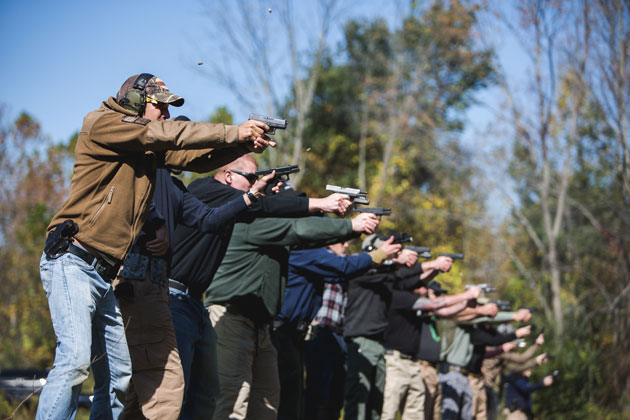
Something that works on a range may not work in the real world, someone has to experience its failure and then look to others to see if that failure was a single event or evidence of a collective problem with a technique based on the experience of others. You don’t see Modified Weaver being taught much anymore, and it has little to do with body armor or competition shooting2, it has everything to do with experience showing that under real stress, our body doesn’t want us to use an unnatural technique, it wants us to square to our threat. This lesson has been passed on to many and pushed the training world (mostly) away from MW. Anyone still teaching it isn’t paying attention to the lessons that are there to learn. No matter the skill or the technique, if it’s been around for more than 10 minutes the chances are high that someone has used it or tried to use it on the street. If the technique is snake oil or something that will only work on the range, repeated experiences in the real world will see the wise instructor stop teaching it because experience is showing it to be ineffective.
What is a firearms instructor if not a conduit for collective experience?
There are some out there who discount the experiences of others because they have a new way to do something, or have developed their own method based on their research. No skill exists without someone identifying a need for it and then developing the best way to instruct it, this is how we improve upon the art and science of self-defense, however it’s dangerous to ignore the experiences of others simply because you believe something to be true without any evidence to support that belief.
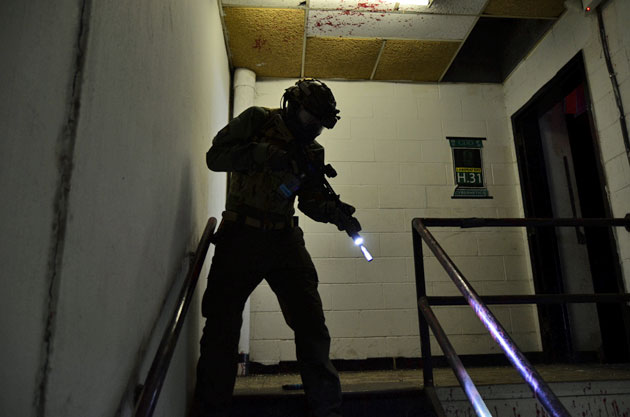
Evidence means actual use in a lethal force encounter, not successfully teaching dozens or hundreds of students how to do it on the range. Experience counts and cannot be ignored. The irony is that an instructor who will willfully ignore real world experience is the same instructor teaching people to prepare them for real world experiences similar to those he/she is ignoring, and while this may make perfect sense in their mind, it actually makes none. You can do all the collaborative white board sessions you want between as many instructors as you want, if physiology and experience says that A is unlikely to happen in real life, you may be wasting your time and polluting the knowledge pool by continuing to teach it. If you are teaching people to fight paper, that technique may be the best thing ever on a range under controlled conditions; teaching people to fight people is a different matter altogether and demands that the smart teacher pay attention to those who have been there.
Every point of instruction is based on lessons learned. Something as simple as trigger control was developed by observing mistakes and correcting performance until the desired result was achieved. This is a mechanical performance that requires mechanical experience. Anyone can develop this experience through repetition and if they are inclined to do so, teach others. All of your venerable firearms fundamentals follow suit. Correct experience and understanding of success allows someone to pass along that knowledge until they are training the total mechanical package from grip to follow-through. The results of their practice and experience will be evident in how well they put holes in paper and the consistency of their shooting across a wide range of situations (shooting on the move, speed shooting, racing the clock, distance, etc.).
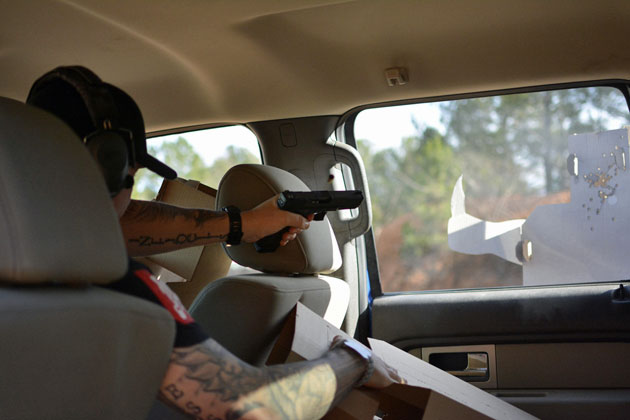
Being able to do it and being able to teach it are two different things, though not exceptionally difficult to someone able to communicate well with others. It’s when we get into the external techniques such as the proper use of cover, effective use of light, targeting the human body, close quarters shooting, working around vehicles and clearing rooms (among other skills and techniques) that it pays to learn from those with experience because not doing so can be critically expensive to your students. All of those techniques were developed with personal experiences and some of those lessons of what doesn’t work are a direct result of people dying. There are hundreds of thousands of variables that go into any use of lethal force, but there are many constants as well and to willfully ignore those constants on pride or personal opinion or half baked pseudo-science , well, that’s just stupid.
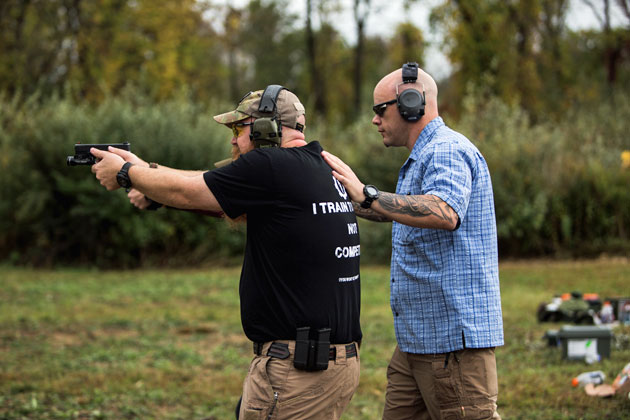
I was once told by a veteran instructor that “you shouldn’t let your personal experiences cloud your judgment.â€Â  I will be honest, that statement is in my top 10 of the dumbest things anyone has ever said to me because my personal experiences shape my judgment. Imagine that advice applied to anything from making a sandwich to performing brain surgery and it makes no sense, yet somehow it’s supposed to make sense when teaching someone self-defense shooting just because I have a good deal of experience pointing guns at real people and he may not? This instructor has been teaching for decades and has trained thousands of students, which is an excellent measure of the physical time that has passed and how long he has been in business, it is in no way a measure of how right his instruction is and no one should use it as such.
The context of this exchange was in regards to this instructor teaching a technique to clear malfunctions on a handgun without looking at the gun and me pointing out that it was highly unlikely to occur that way in reality based on my personal experience and the experiences of others. Obviously if we are engaged in a fight and something goes wrong, we want to keep an eye on our threat while we fix the problem (which is a lesson learned and why we teach people to do everything in their workspace). It does makes plenty of sense to strive to fix the problem without looking; however our eyes are going to be the biggest source of data when something isn’t working right and we need to fix it. There’s an entire science and decades of research behind eye/hand coordination and this instructor threw it all out the window with a blindfolded student demonstrating his technique.
It worked on the range; and may help someone refine their technique but the fact is that if a reload isn’t lined up right or there is an atypical malfunction on the gun, we are going to look briefly at the weapon because that is the quickest way to gain information on why our fix isn’t fixing what needs fixed. Was their some great cry from the shooting public that malfunctions and reloads needed to be revolutionized? No, in my opinion it’s just one school of thought trying to be different for the sake of being different or because their theory is incomplete and disguising it as science with no evidence to the fact. Our senses work together for a reason; we have evolved this way based on collective experiences. You can either try to override it because you had a neat idea or learn to work with it based on experiences.
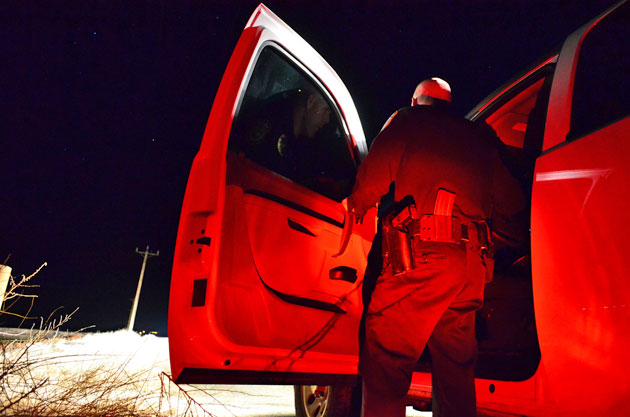
Many things require experience and we gladly accept this fact and learn from it. From F1 drivers to fighter pilots, ditch diggers to doctors, experience is how lessons are learned and taught. Except when it comes to firearms, when shooting on the range for X number of years is somehow equated to actual experience. It isn’t the same thing. Again, I am in no way saying that having been in a gunfight is a prerequisite for being a firearms instructor, because it isn’t. However, ignoring those who have is a disservice to yourself and to your students and shows a lack of understanding in what exactly you are teaching. If you are going to hang a self-defense title on your method, experiences are going to count. If you are going to develop a new way of doing something based on an idea, I would suggest using the scientific method to validate it. If you cherry pick data to prove its validity, you are wrong.
Gun fights happen in one form or another every single day; are we seeking out that data to refine what we are teaching or are we ignoring proof that what we are teaching doesn’t happen in real life?  We instructors are supposed to be on the same team. Despite being business competitors, we all are (supposed to be) working towards the same goal; giving the student the best set of tools to defend life and working together on the back end is the best way to accomplish this. The best examples of success and failure don’t come from a range; they come from the real knowledge of those who succeeded or failed in real life. Experience in a potentially/actual fatal encounter is not a job requirement, paying attention and learning from those who have been there, is. Having been in a gunfight alone doesn’t make one instructor better than one who has not, but it does give them a perspective that the other instructor cannot replicate on any range and it is full of lessons to be learned for all those willing to learn them.

Always a great read from mr Cowan. I’m saving this to read a few more times.
I am a 75 year old retiree, I live mostly on social security, I saved up to buy a ruger LCR .38 spl, I have a carry permit and carry full time, I have been shooting since I was 9 years old and I hit what I shoot at, I have no combat experience or gun fights to reach back for, I have every other kind of experience, hand to hand, knives, clubs, chains, etc. and I survived. Your article was very good and I agree with it, some of these NEW folks are saying that if you don’t have their training you should not be carrying, I have a problem with that, I really can not afford to pay for these courses, I’m lucky to afford my weapons and ammo for practice. I feel that these guys are just trying to make a buck, and are doing a dis-service to people like me.
chuck, I think the point that is GENERALLY trying to be made in respect to needing trainging is that the vast majority of people go buy a pistol at the gun range, put half of a box of ammo through it, and put it in the nightstand.
They havent been shooting since they were 9, like you. If you put income aside, I believe everyone that buys a gun for self defense should have training. Some people cant afford it, fine.
Here’s where you are going to get upset. If you want to go to a course, and you are 75 years old, you should have saved better for retirement. You should have been going to them while you were in the work force. You shouldnt have bought a $400 revolver when you could have has a $250 police trade in glock with a lifetime warranty.
You shouldnt complain about not having a buck, and other people making a buck in the same paragraph. Imagine me knifehanding you and calling you a commie. Cause thats what I am doing.
internet rant off.
Easy to run your mouth off on the internet.
Great text!
I agree with all the points raised! Experience in real confrontations complements the theoretical knowledge, but realize that the theoretical-scientific basis is essential for the correct application of the technique.
Teaching service requires responsibility and dedication.
Congratulations for excelelnts items article!
Great points!